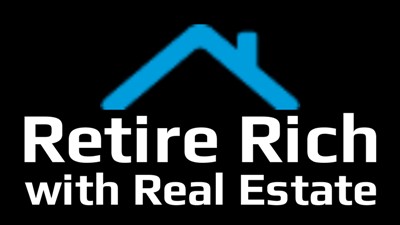What other investment offers you all these benefits?
- Monthly Income -- Rental property can generate a steady stream of monthly income. If you choose to finance the property, this income can be used to make the payments. When purchased and managed properly, you should have a spendable net income after mortgage and all expenses are paid.
- Appreciation -- Real estate generally increases in value long term. Inflation, cost of living, and other economic factors tend to increase more than decrease over long periods of time, driving up home prices.
- Income Tax Deductions and Depreciation -- Rental properties have expenses, such as property taxes, insurance, utilities, mortgage interest, etc. All these expenses can be deducted from your gross income reducing your taxable net profit. The IRS allows you to depreciate the structures on your property (not the land) and many times you can end up showing a loss or little income, further reducing your income tax liability. This is a huge benefit of owning real estate.
- Real Tangible Assets -- Unlike stocks and bonds, real estate is tangible. You can see it, feel it, touch it. I love investing in tangible assets; it is far more interesting and fun. No one asked me about my recent stock purchases, nor do I care to speak about them. Real estate, on the other hand, is something with which everyone is familiar, and I am asked constantly about what deals I have made and projects I am currently working on.
- Control Over Investment/Management -- Real estate investments allow you to have control over how your money is spent and how the property is managed. If you manage your own property (which I recommend you at least try it for a while) then you set the rent, determine maintenance schedules, decide what to repair or replace and make many other decisions. If you like control, this is for you. If you want a more "hands-off" approach you can hire a management company to manage your properties for a fee.
- Financing is available -- Try to go to your bank and ask for a loan to buy stocks or bonds. They will probably laugh at the request. I assure you, they will not loan you money to invest in the stock market. But when it comes to real estate, banks want to lend money. Real estate offers security to the banks because it is a real tangible asset. If you default on your loan, they can foreclose on the property and sell it, and use the proceeds to cover the cost and repay the loan.
- Real Estate Will Never Be Worth Zero -- Real estate will never be worth zero because no matter what is paid for the property or how much it may go down in value, it will always be worth something. The structure itself, may deteriorate or collapse and fall to the ground, but the land that the structure sits on will always have value.
- Rental Housing is Needed in Good and Bad Markets -- Real estate is not recession-proof; properties do go up and down in value. We all have seen this happen during the recent Great Recession. Rental housing demand has remained consistent or many areas have seen growth in recent years. Much of the increase in demand was created by a large number of foreclosures over the past few years. I don’t see this trend changing anytime soon. Many former homeowners who lost their homes feel they were burned by the banks during the housing bubble. These people have been forced into the rental market and may have no desire to ever return to home ownership.
- Government-subsidized Programs Can Help Pay for Your Properties -- The government has programs like Section 8 which is administered by local HUD agencies. This program allows a tenant to receive rent subsidies based on his or her income. These payments are guaranteed to the landlord and are deposited directly into the landlord's bank account on the first of each month. HUD also has government-backed loans, tax incentives, and grants are available that can be used to purchase and/or repair rental properties. Programs such as the HUD 203k program allow home purchasers to finance rehab costs into the mortgage. While most of this money comes from the federal level, some local municipalities may offer tax incentives, grants, or loans in exchange for renting to low-income tenants.
- Can Be Insured -- Unlike stocks and other investments, real estate can be insured against some losses. I say some losses because obviously if you buy high and sell low that loss is not covered. What I’m really talking about here is protecting your investment in the physical property. You can buy insurance that covers structural damage from things like fire, theft, wind, flood, etc. If your property is a rental, there is even insurance available to cover the loss of rental income suffered if your property is out of service due to one of the aforementioned disasters. This allows you to continue to get paid while the property is being repaired.

